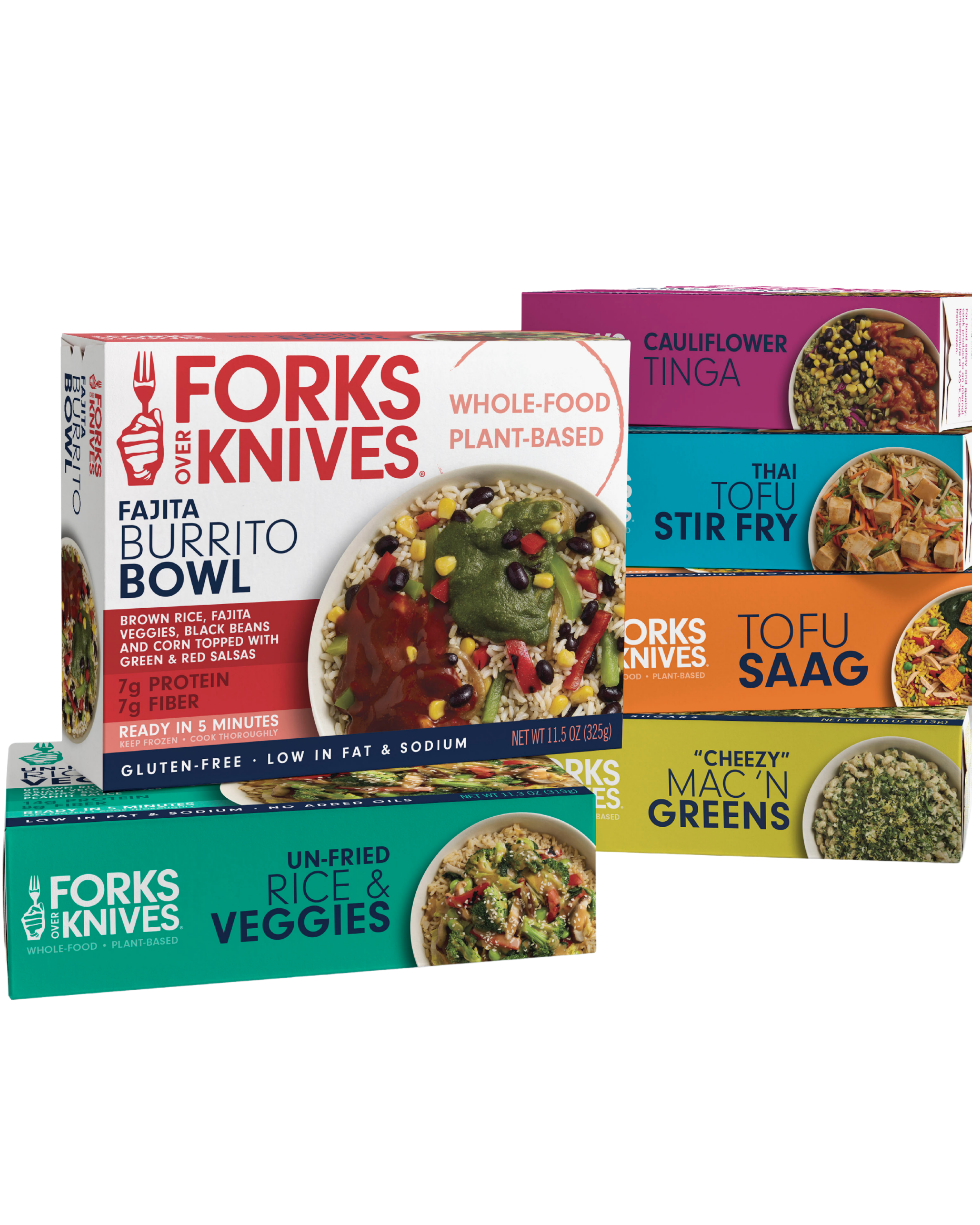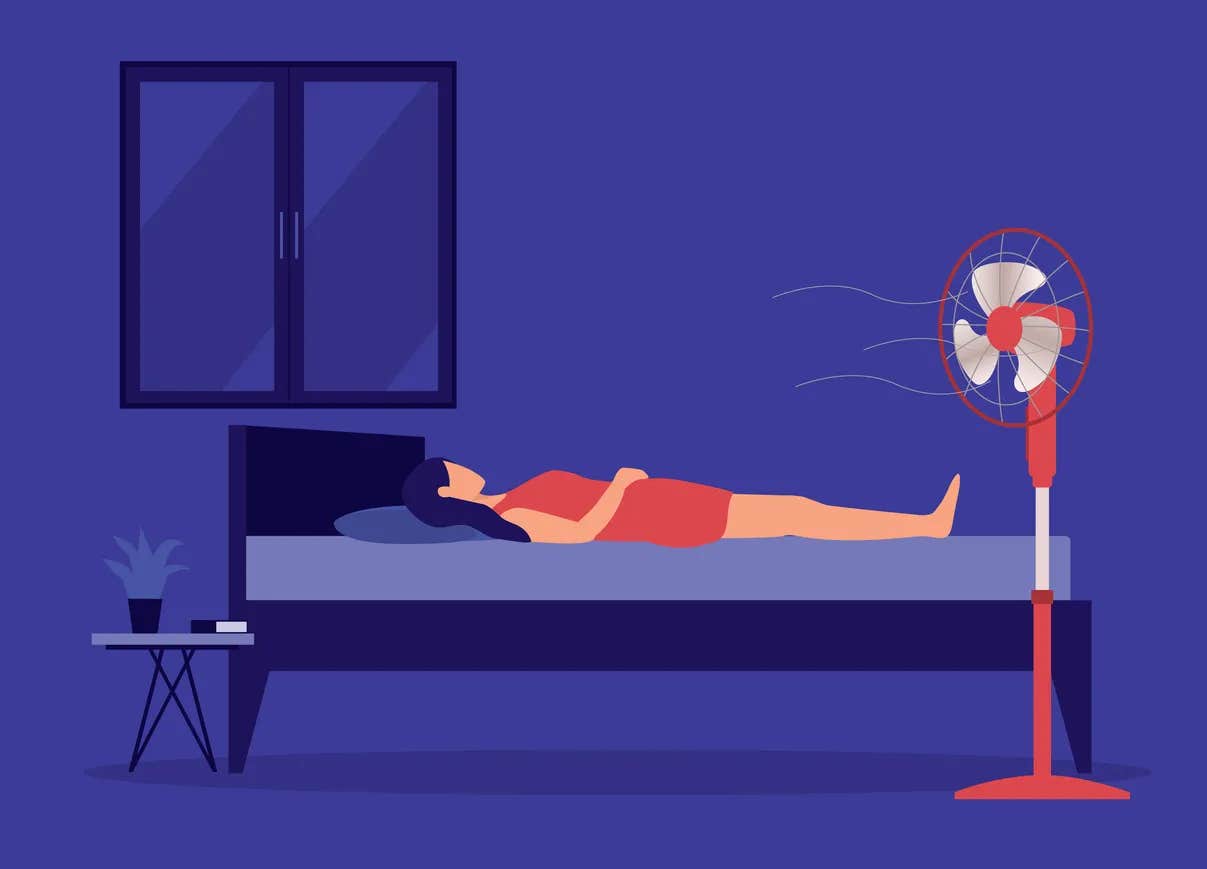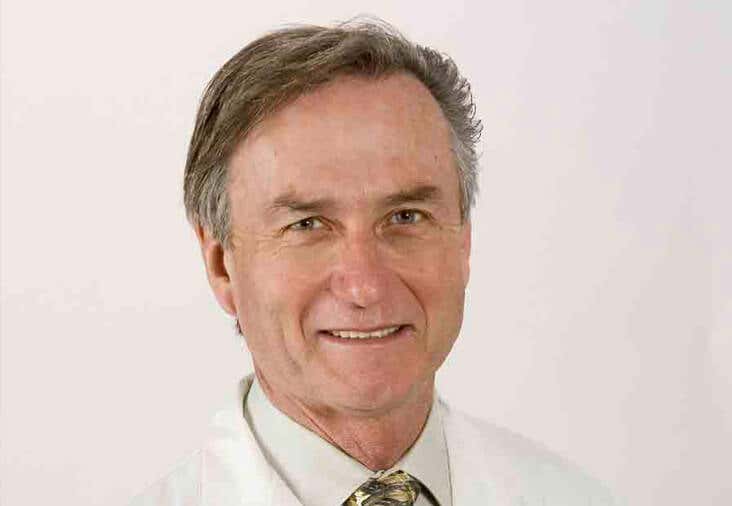More than 30 years ago, I performed and published the first study on the dietary treatment of breast cancer. Although it was a small study circulated by an obscure journal, this was an important beginning for the current medical thinking that a healthy diet should be fundamental therapy recommended by physicians for all cancer patients.
Research at that time (before the 1980s) had shown that overweight women with high levels of cholesterol, estrogen, and prolactin in their blood died sooner from their breast cancer than women with lower values. This study demonstrated that the McDougall Diet improves all of these prognostic factors without costs or side effects. The ultimate benefits are predicted to be a reduced risk for recurrence of the cancer and a longer life. "Cure" is the proper word to use for patients who live out their normal life expectancy.
The McDougall Diet is based on common starches, like beans, corn, potatoes, sweet potatoes, and rice with some green and yellow vegetables and fruits. No vegetable oils. No supplements.
On February 13, 2015, the American Cancer Society published their recommendations that cancer survivors should follow "prudent diets," plant-based diets that are high in fruits, vegetables and unrefined grains while at the same time being low in red and processed meats, refined grains, and sugars. Its report states, "These diets are contrasted to 'Western' diets,' which have the opposite pattern and are heavy in meats, sweets, other processed foods, and dietary fat." They also recommend weight loss and exercise in order to prolong survival for people with cancer.
This turn in thinking about the importance of food is especially important because the latest statistics (2015) from the American Cancer Society show little improvement in survival rates over the past 40 years for cancer patients; regardless of the good intentions of their practitioners, aggressively attacking their tumors with surgery, radiation, and/or chemotherapy. (Improvements from standard medical treatments have been limited mostly to childhood, blood, and lymphoid cancers, representing fewer than 10% of all cancers.)
Improved Survival From a Healthy Diet
A low-fat, plant-based diet* has been shown to positively affect survival in cancers of the:
*This research has been based on diets that are still too high in fat (30% or higher), loaded with animal foods, and deficient in plant-derived foods (especially starches). A truly low-fat, starch-based diet like the one once followed in Japan (rice and vegetables with fewer than 10% of the calories as fat) would provide far greater benefits for prevention and survival than the "Mediterranean-type" diets that have been recommended lately. A truly therapeutic diet, like the McDougall Diet, is 7% fat with no meat, poultry, fish, eggs, dairy, or vegetable oils. Meaningful research in the future should use the best treatments available rather than compromise the patients' health with "prudent diets."
This enlightened dietary approach focuses on strengthening the human body and its magnificent abilities to heal and stay healthy; while, at the same time, removing cancer-causing and -promoting elements from the patients' diets. Even diseases, which seem as far removed from food as pre-cancerous actinic keratosis of the skin and lung (smoking) cancer are benefited with a healthy low-fat diet. The McDougall Diet supports phenomenal recoveries in many ways.
Ten Diet-Induced Changes That Slow and Reverse Cancer
- Losing weight: Obesity increases not only the risk of getting cancer, but overweight people die sooner from their cancers.*
- Cutting out meat: This removes substances known to cause cancer progression.
- Stopping cow's milk: This removes substances known to cause cancer progression.
- Reducing intake of growth stimulants: Animal foods of all kinds increase growth factors (IGF-1, etc.) for cancer progression.
- Giving up vegetable oils: Isolated corn, safflower, olive, etc. oils will encourage tumors to grow faster (than do animal fats).
- Avoiding consumption of cancer-promoting chemicals (environmental carcinogens and persistent organic pollutants).
- Increasing immune system enhancing plant components called phytonutrients.
- Growing healthy intestinal bacteria to enhance the body's defenses against cancer.
- Increasing intake of anti-cancer plant sterols.
- Raising the consumption of cancer-fighting folates. As the root word "foliage" implies, these substances are from plants.
Independent of diet, physical activity (exercise) has also been shown to significantly improve survival of women with breast cancer. Sunshine is also vital for health and could cut the risk of dying from breast cancer in half. (I do not recommend vitamin D supplements.)
* People treated with a low-fat, starch-based diet become healthier, and one sign of this better health is they become trim. Unfortunately, physicians misinterpret the meaning of this weight loss as a sign of sickness because of their past experiences which have taught them that "slim" means the end of life; because their patients lose their appetites and become malnourished with illness and treatments. Patients must not let themselves suffer from their doctors' biases and ignorance. (React when you hear, "You can go on a vegetarian diet, just don't lose weight.")
Is Hope Ever Lost?
I often see women with breast cancer, men with prostate cancer, and both genders with many other forms of late-stage cancers. Their doctors have given them no hope; in fact, in most cases, well-intentioned medical treatments (surgery, radiation, and chemotherapy) have added to their miseries. Hopelessness compounds the suffering. Patients need to be told that even with advanced cancer, there is sometimes recovery, called "spontaneous regression." The standard definition of spontaneous regression is "the partial or complete disappearance of a malignant tumor in the absence of treatment or in the presence of therapy considered inadequate to exert a significant influence on the disease." Spontaneous regression of cancer is not as rare an occurrence as once thought. In a study based on mammograms, 22% of the invasive breast cancers in women spontaneously regressed (disappeared on their own) over a six-year interval (with no treatment).
People with a body full of disease have also recovered. One recent report identified 32 cases of spontaneous regression of clinical breast cancer. There are certainly many more unreported cases. Advanced melanoma, brain cancer (neuroblastoma), and kidney cancer are also known to disappear without treatment. Precancerous changes in the female uterine cervix and colon polyps also regress naturally.
Simple logic would lead to the conclusion that "such a miracle" is more likely to happen for someone in good health, rather than in poor health. The only way I know to consistently improve health is by replacing destructive habits with supportive ones. The most powerful of these necessary changes is the kind of food (not the quantity).
I have seen what I believe to be spontaneous regressions in my patients. Ruth Heidrich is one remarkable example of metastatic breast cancer, spread to the bones and lungs, diagnosed over 33 years ago, and she lives cancer-free today. Ruth was with us in January of 2015 on the Hawaii McDougall Adventure trip.
Never give up! It's the food.
Diet and Cancer Success Story
At age 29, on April 11, 2011, Jessica Bowen was diagnosed with aggressive Stage 3 invasive ductal carcinoma of the breast cancer. (Stage 3 means the cancer is large and has spread to multiple lymph nodes, and maybe to the skin and muscles of the chest.) She underwent standard therapies and changed her diet. I heard from Jessica on February 22, 2015. "Hello! I am doing good, thank you for asking! I'd be honored if you use my story any way you see fit! If it can help anyone, that makes me happy. Here is an updated picture. I was a 'survivor model' for Rock the Runway & Runway for a Cause last year...I was able to share my story with other survivors while participating."
Originally published in a McDougall Newsletter and republished with permission. Click here to sign-up for the McDougall Newsletter for free.

Related News
New Frozen Meals!

Introducing our new frozen meals: Doctor-recommended, chef-crafted, & ready in minutes.




